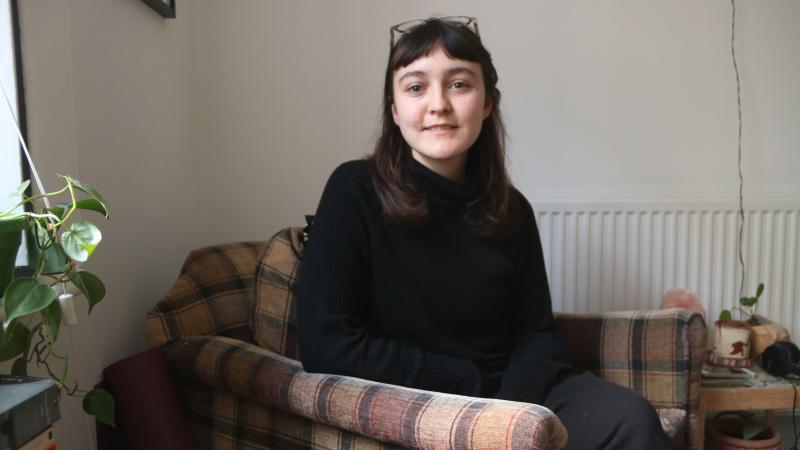
Women’s History Month: Efa Blosse-Mason
Biography
Efa Blosse-Mason is a filmmaker from Cardiff who wrote and directed a short Welsh language film ‘Cwch Deilen (Leaf Boat)’ which is currently on BBC iPlayer. Efa went to University at the Bristol School of Animation and her graduate film ‘Earthly Delights’ won the Royal Television Society Award for best student animation in 2019. Her work is usually focused on the themes of women, LGBTQ+ stories and nature.
When was the first time you realised you wanted to make films?
I wanted to be a filmmaker from quite a young age, and when I was a teenager my parents gave me a camera for Christmas and I made a few short films with my friends. I thought I wanted to be a live-action filmmaker before I discovered animation. I did some work experience with an animation company, which made me decide to go to university to study it, and the more I did the more I fell in love with it. I just love how you can create worlds and fantastical things.
What was the last project you worked on / made?
The last project I worked on was a really tiny 1 minute animation I made in collaboration with the singer Casi Wyn called ‘Y Genhinen Aur’ (‘The Golden Daffodil’ in English) which we made to celebrate St David’s day and the coming of spring…but also acknowledging the hard year we’ve collectively had due to the coronavirus pandemic…and the hope for better days ahead.
What are you up to now? / What is the next project you’re working on?
I am currently doing something new and trying my hand at making a comic! It’s a bit different from animation…telling a narrative across the space of a page rather than a timeline. I am hoping to make it into a whole graphic novel but am at very early stages so far. I’ve been reading a lot of graphic novels to get inspired, my favourites are ‘Fun Home’ by Alison Bechdel and ‘Persepolis’ by Marijane Strapi, ‘Maus’ by Art Spiegelman and ‘Ant Colony’ by Michael De Forge.
Useful links:
- Q&A with Claire Vaughan on the Chapter Player
- BFI Network interview
- Iris Prize interview
- HENO / S4C interview
- Buzz interview
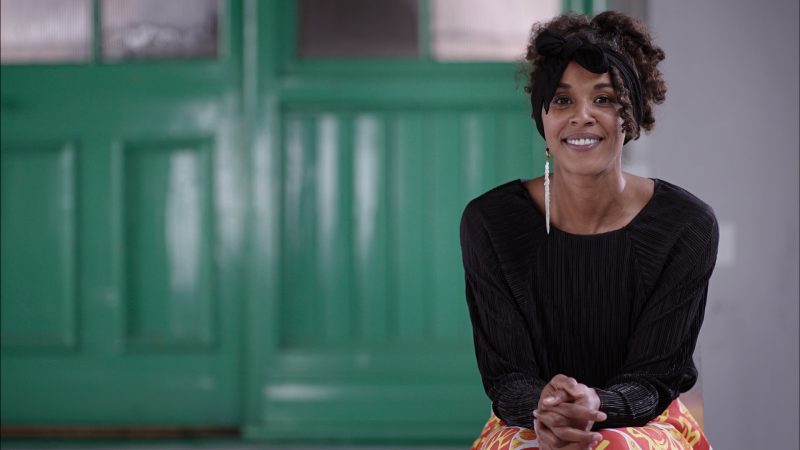
Women’s History Month: Liana Stewart
Biography
Liana Stewart is self-shooting Producer/Director from Cardiff with over 10 years experience producing factual, current affairs and documentary content for television. From landmark series to single documentaries and short form, recent credits as a self-shooting director include: Bafta award winning series Ambulance (BBC One), Get Your Knee Off My Neck (C4), Black and Welsh (BBC One Wales) and Stacey Dooley Sleeps Over (Sky).
When was the first time you realised you wanted to make films?
I’ve always loved movies. I’d sit and watch Disney films on repeat as a kid but it wasn’t until I was a teenager – and I got the Spike Lee experience – that I thought…‘maybe I could do that’ – but it wasn’t directing and it was acting. I originally wanted to be a dancer and went to musical theatre college in London, but after the 1st year I came back to Cardiff to focus on acting. The plan was to imitate Spike Lee and direct films…and act in them too! Long story short, I ended up making factual programmes..not fiction and I wouldn’t change a thing..but I am still a Spike Lee fan!!
What was the last project you worked on / made?
The last series I worked on was Stacey Dooley Sleeps Over for Sky. It was so much fun and I got to make an episode in Wales!
What are you up to now? / What is the next project you’re working on?
I’m currently working on a development for a single documentary.
Useful links:
- BBC Wales Article: Black and Welsh – The assumptions and questions people face
- Industry Voices: Liana Stewart interview
- Welsh Language Week Ambassadors (College Gwent) interview
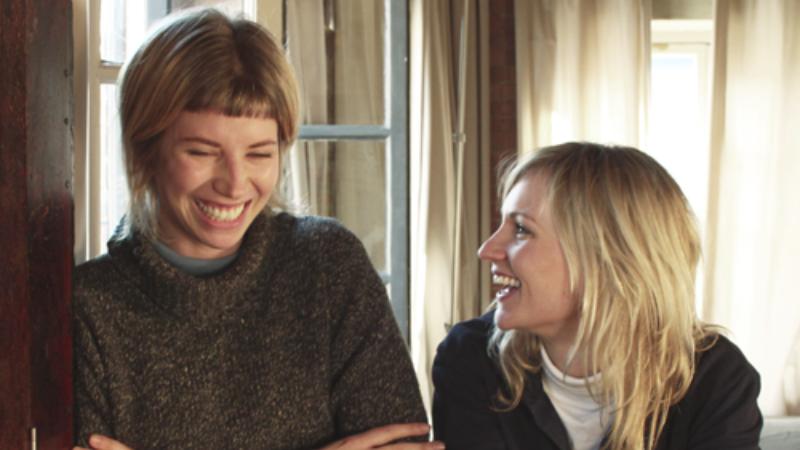
Women’s History Month: Hannah Daniel & Georgia Lee
Biographies
Hannah started her career as an actor and has worked for over 15 years in theatre, film and television. Credits include Hinterland, Keeping Faith, and Holby City. In 2016 she spent time improvising at the UCB Theatre and The Groundlings in Los Angeles, where she began her work as a writer-performer.
Georgia started her career as a musician and songwriter and was signed to Island Records with her band JUCE. Since 2017 she has been working full time as a screenwriter and producer. She has collaborated with screenwriter John-Henry Butterworth and a number of British and US production companies on a range of dramas for TV and film.
When was the first time you realised you wanted to make films?
We met in university in 2005, studying English Literature. We lived together, studied together and, both avid film fans and masters at procrastination, watched a lot of movies together. We’d watch the Coen Brothers’ back catalogue repeatedly – lapping up the fluidity of genre in their films – their darkness, their humour, the breadth of wild and wonderful characters. We’d sit on the sofa dreaming up the films that we, like The Coen Brothers, would one day write, direct and produce ourselves…
Finally, in 2017, having started writing together a year previously for television, we decided it was time to write and direct our first short film. DESTINATION was shot in three days around Cardiff, in Hannah’s mum’s car on a shoestring budget. It follows a day in the life of a young Welsh female Uber driver facing a huge life decision.
The film went on to win multiple awards internationally.
What was the last project you worked on / made?
We completed our short film BURIAL in August 2020 (As part of Beacons: Short Films From Wales). A dark comedy set in a very Welsh funeral, about grief, sisterhood and complicated family ties. We shot it in Port Talbot with a wealth of Welsh talent. We had a ball!
What are you up to now? / What is the next project you’re working on?
We’re currently working on our first original feature script. Other projects in development include TV comedy NANNIES, a series following a bunch of delinquent childminders chancing their way through the madness of Cardiff’s “New Parent” scene, and THE INVISIBLE WOMAN a truly unconventional superhero story.
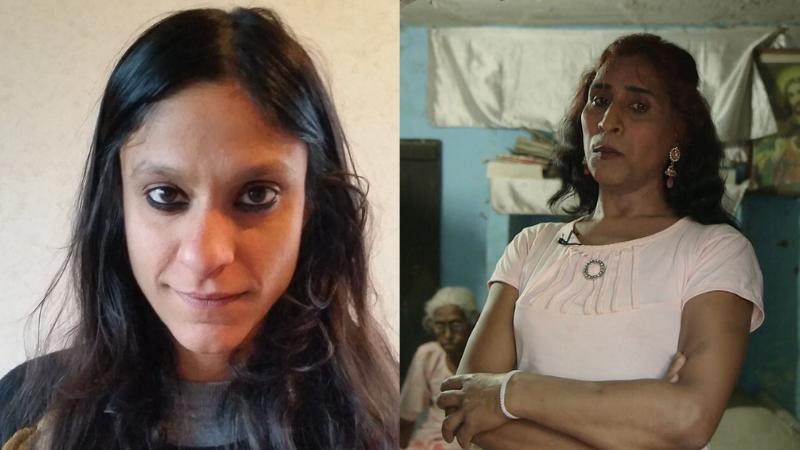
Women’s History Month: Ila Mehrotra
Biography
Ila Mehrotra was born in Delhi. She graduated from the University of Sussex and has worked in British film and television for the last decade. She has worked for broadcasters including BBC, Channel 4 and ITV on investigative documentaries for Dispatches and ITV Exposures and observational BBC 4 docs with Emmy and BAFTA winning directors. She has been involved in production on many different levels, including undercover filming and as a self-shooting AP working on her directorial feature debut.
When was the first time you realised you wanted to make films?
I have always loved storytelling and the visual medium. I studied photography at the University of Sussex and, before I graduated, I started working on a Dispatches for Channel 4. I felt my love for storytelling and the visual medium meet and there has been no looking back since then.
What was the last project you worked on?
The last project I worked on was called ‘Eugenics – Science’s greatest Scandal’ for BBC 4 and I have also been working on my directorial feature ‘India’s 1st Trans Model Agency’ (AKA Hijra)… because of the lockdown I’ve had very exciting remote shoots with my characters in India through a trusted camerawoman…and amazing technology which allowed me to be present for the more sensitive scenes.
What are you working on now?
I’m just about to start work on an exciting project celebrating diversity in Wales with a leading Welsh production company for BBC Wales.
Useful links:
- Fundraising Appeal For Hijra, please consider donating.
- Follow the film on twitter

4 Ways to Celebrate International Women’s Day 2021
IWD: International Women’s Day is a global day celebrating the achievements of women.
Activity takes place worldwide as groups come together to celebrate women’s achievements or rally for women’s equality.
As we celebrate while staying at home this year, why not check out the many online programmes and events from our members and beyond that are celebrating IWD in a big way!
Look out for us on social media (@filmhubwales), where we’ll be spotlighting many brilliant female filmmakers in Wales, finding out what drives them to make films, and the inside scoop on their recent projects.
We also encourage you to raise your hand high to show your support, solidarity and your commitment to #ChooseToChallenge
Strike the Choose To Challenge pose as part of the IWD 2021 campaign theme and share on social media using #ChooseToChallenge #IWD2021 to encourage further people to commit to a more inclusive world. Tag us too, we want to see!
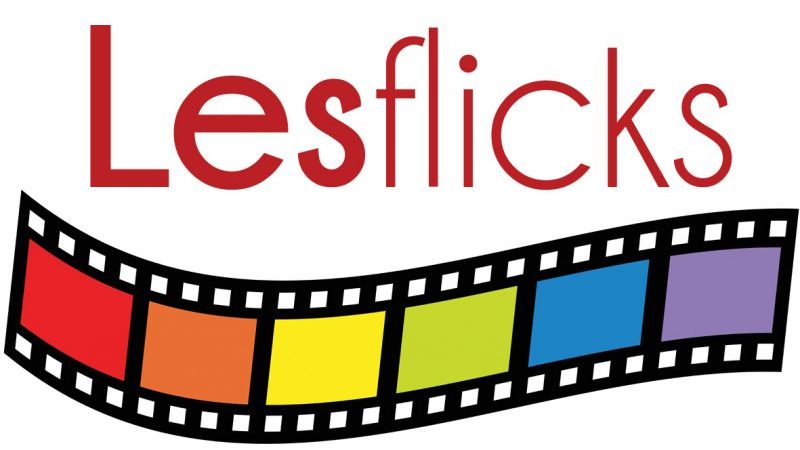
Why Naomi Bennett Launched Lesflicks, A Film Streaming Platform For Queer Women
This week, Forbes interviewed Naomi Bennet of Lesflicks about why she launched a film streaming platform for Queer Women.

WOW Wales One World Film Festival: Free & Online Festival, March 11-21 2021
Celebrating 20 years of eye-opening world cinema to Wales, WOW Wales One World Film Festival in partnership with Aberystwyth Arts Centre returns this March in a somewhat different guise. Instead of buying tickets to enter a darkened cinema, festival goers will be settling back into their sofas to view the films streaming online, for free.
The free WOW Film Festival opens on Thursday 11th March, 10 years to the day since Japan’s devastating earthquake that led to the Fukushima nuclear meltdown. The first film, chosen to mark this sad anniversary, is 3:11 A Sense of Home, Naomi Kawase’s a collection of shorts from directors such as Oscar winner Bong Joon Ho (Parasite), Victor Erice and Patti Smith that explore timely themes of renewal, recovery and home.
WOW Film Festival’s “Green Screen” selection includes several environmental films. Among WOW Festival’s many international guest speakers this year is forest ranger turned best-selling German author Peter Wohlleben, whose film The Hidden Life of Trees has its UK online premiere. The growing local food movement is the theme of documentary First We Eat, whose director Suzanne Crocker will be joining live from Canada’s frozen Yukon.
One of sixteen online premieres, the strange and wonderful Sanctorum imagines the awesome power of nature unleashed to protect the traditional way of life in a mountain village. Beloved about an 82 year old woman devoted to the wild mountains and her cows will feature alongside a Q&A with producer Elaheh Nobakht from Tehran.
Need a laugh? Feel good movies include comedies Arab Blues starring Iranian actress in exile Golshifteh Farahani (Paterson, The Patience Stone); The Whaler Boy set against the visually poetic backdrop of the Bering Strait and Joy, an international programme of short films curated from the best of Iris LGBT+ Film Festival.
There is plenty of family viewing too. Lunana: A Yak in the Classroom is a heartwarming drama set in the world’s most remote school, high up in the mountains of Bhutan. Delfín follows a young boy whose determination to audition for a children’s orchestra takes him and his father on a life changing adventure. Kotatsu Japanese Animation Festival are joining the WOW Women’s Film Club’s International Women’s Day celebration with a selection of animated family-friendly shorts by up and coming female animators in Japan. Running to the Sky sees young runner Jekshen competing for the top prize in traditional running races of Kyrgyzstan.
Nature, gods and mysticism feature in WOW’s “Strange Films for Strange Days” strand. Laos’s only female film director Mattie Do is another guest speaker, alongside her wonderful ghost story The Long Walk, presented by Abertoir Festival. Abertoir are also presenting the chilling Malaysian folk-horror Roh. In Tantas Almas/Valley of Souls about Colombia’s civil war, the swampy air of the magnificent Magdalena river is thick with mystery and fear.
Saturday 20th March is Nowruz, or Persian New Year. Iranian film curator Ehsan Khoshbakht will introduce his film about the vibrant world of Filmfarsi, a popular genre of cinema from the 1960s and 70s, alongside the UK online premiere of the restored version of the greatest Iranian movie of all time, The Deer, which is rarely seen outside Iran.
The 2021 WOW Film Festival will wrap on Sunday 21st March, with a celebration of the UN’s International Day of Forests. With the climate emergency, everyone is talking about planting trees. But are we going about it in the right way?
WOW Film Festival Director David Gillam said:
“It has been really exciting to put together our first online festival. Now people anywhere in the UK can join the party and discover what Welsh audiences have enjoyed for twenty years.We would like to thank all our funders and sponsors who have made it possible for us to brighten these dark days by providing the online festival entirely for free. Without the support of the Welsh Government’s Cultural Recovery Fund, this free festival would not have been possible.We’ve only thrived for so long thanks to the support of many great partners. But I would particularly like to thank everyone at our ‘spiritual home’ in Aberystwyth Arts Centre without whom we simply couldn’t have put on this year’s festival. Other film festivals in Wales have also provided essential support. As well as bringing the world to Wales, by taking WOW online, we can export the best of Welsh film festivals to the rest of the UK. I would also like to thank the many people who have supported WOW over the last twenty years.”
WOW Film festival is funded by The Welsh Government’s Cultural Recovery Fund, Ffilm Cymru Wales, National Lottery Communities Fund and Film Hub Wales as part of the BFI Film Audience Network (FAN), made possible by the National Lottery.
For all the news on the festival, visit ww.wowfilmfestival.com and sign up to the newsletter.
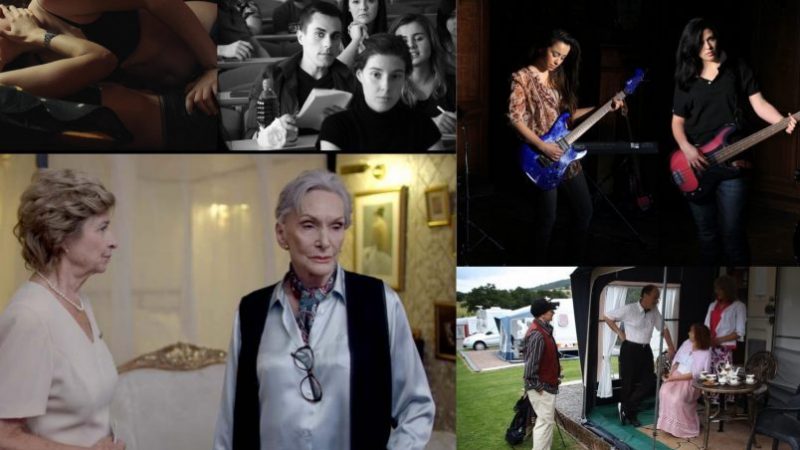
An Interview with Rachel Dax
‘Made in Wales‘ is a strategy developed by Film Hub Wales supporting the promotion and exhibition of films with Welsh connections. A film doesn’t necessarily have to be made in Wales, but might have a Welsh director, writer or storyline. This month we’re celebrating LGBTQ+ history with a focus on Lesbian filmmakers and interviewing Cardiff based writer / director Rachel Dax.

Half way into Time and Again – the latest short film by filmmaker Rachel Dax – ‘Eleanor’- played by Sian Phillips – and ‘Isabelle’ – played by Brigit Forsyth – come face to face decades after a painful betrayal. Amid their heated discussion Eleanor matter-of-factly declares that, despite the lingering heart-break, she’s actually had a ‘‘wonderful life’’…a partner…and makes it clear that she resents Isabelle’s assumption that she’d been ‘pining (over her) like some sad dyke in a warning novel’’.
It is a moment set up to challenge us, much like it challenges Isabelle. The camera barely shifts its gaze from the two of them, frozen in a moment that has been trying to catch up with them for decades. It is rare to see older, lesbian women on screen and even rarer for them to stand their ground, to state that their lives have been fulfilling – that they’ve lived. On screen, the gentle everyday, the plain white walls of their country nursing home and the almost mundane are carefully juxtaposed with this sense of restlessness…a deep desire to get up, to go, to move on and to just…be.
‘‘I think…the kind of phrase my friend uses is, ‘‘use the s**t as fertilizer’’, says Rachel who, it seems, has been preparing to write moments like the one above her whole life.
‘‘…I was quite religious when I was a teenager and I got involved with born again, Christianity…I decided that I wanted to be a preacher. So I went off to university to do theology and philosophy, a very academic degree. But at the same time I knew I was gay. So I was in this kind of very difficult state…religion, sexuality… constantly embattled in myself and eventually the sexuality – because I am a lesbian – just completely overtook everything. I didn’t quite ever get to the point of being an atheist, but I rejected that very extreme religion I was involved with”.
After graduating, she became a secondary school Religious Education teacher…
‘‘…And I hated it. I just got to the point thinking I really can’t do this anymore. One of my partner’s best friends moved to Cardiff, and we went to visit a few times and thought…there seems to be lots going on here. I was meeting lots of artistic people and I’d always wanted to be an actor. And I thought maybe this is an opportunity to do something new”.
And within just a few months, fate struck – she started doing acting courses, writing courses and eventually went back to university to do drama, where she ended up taking on a film writing module ‘‘for a laugh”.
‘‘As soon as I started doing that, I realised I didn’t want to be an actor at all. I wanted to be a writer director. So suddenly I was taking every option I could in film…which took me by surprise, but it’s actually become my greatest passion of all”.
Rachel is also an all round creative with several anthologies and audio stories to her name, not to mention that she never really gave up on teaching having continued onto a successful career in Higher Education. She still maintains a close relationship with parts of that initial journey, teaching at the University of South Wales and now Cardiff University.
They have continued to support me as a creative person, as well as bring me in to do teaching. They’ve given me work, they’ve given access to equipment. I’ve been given a lot of opportunities to teach what I want in terms of creative writing and short filmmaking, but they also tweet about what I’m doing and promote me. I’ve been very lucky to have that.
I tell her that at the end of Time and Again, ‘‘I – almost ironically – scrawled down the words ‘A delicate love for oneself, becomes a delicate love for others with fury!’ I was eager not to forget this thought. It is a small something that came up again and again the evening before, as I hunched over the computer to re-watch each of the short films on her website after dinner.
I want more, but later – expanding on something she mentioned lightly in our email exchange – she said that simply wasn’t possible.
‘‘I lost my YouTube channel…it was devastating because I was really successful…millions of hits overall…I think it got shut down because of homophobia. After Trump came into power, unbeknownst to me YouTube changed its terms and conditions about how you can advertise and what you have on there. Gay content started to become marginalised and I didn’t know any of that at the time. I put up my film ‘A Delicate Love’ – it got something like 10,000 hits in a week. I was advertising it on Twitter and on one of my tweets I put hashtag gay sex. I think YouTube decided that violated their terms and conditions for advertising or…and I don’t know for sure… somebody homophobic might have hacked my account… because I would get the same email… We’d like to inform you that due to repeated or severe violations of our Community Guidelines your YouTube account has been suspended…After review we determined that activity in your account violated our Community Guidelines….Every time I appealed, I just got this email back. So I uploaded my best films to Vimeo instead’’.
Luckily, she clarifies, she does have copies of her earlier films on a hard-drive, but didn’t have the chance to dig them out before our meeting. She assures me that I’ll get a chance to watch them at a later date.
In contrast, Time and Again has been on BBC iPlayer for over a year (available until Sunday 28th February):
‘‘…which is unheard of for a short!’’ exclaims Rachel. ‘‘It’s been broadcast twice on BBC two at nine o’clock, which is a really, really good slot…quite often, the gay films are shown very late at night, maybe about 11 o’clock and they’re on for 28 days maximum…sometimes only for a week and then they disappear off. So I’ve been very well-supported by the BBC’’.
Art imitates life, and although none of her films speak directly to the issue of being censored, the act of self censoring and holding back..and being censored by others is something we are often too familiar with having to do as queer people.
 In Caravan Sight, Richard and Georgina are two prominent London lawyers who spend their weekends in Wales, swapping gender roles unbeknownst to any of their friends. For two days at the end of the every week, their hectic, high pressure lives are given a small release where they can be a little bit more of themselves. Things became tense when their homophobic boss happens to be holidaying at the same campsite, but throughout the entire film we see that learning to love our queerness makes us softer, and in turn creates more room for that love to spill over and nurture others, and our relationships with them.
In Caravan Sight, Richard and Georgina are two prominent London lawyers who spend their weekends in Wales, swapping gender roles unbeknownst to any of their friends. For two days at the end of the every week, their hectic, high pressure lives are given a small release where they can be a little bit more of themselves. Things became tense when their homophobic boss happens to be holidaying at the same campsite, but throughout the entire film we see that learning to love our queerness makes us softer, and in turn creates more room for that love to spill over and nurture others, and our relationships with them.
…it’s not only about learning to love yourself as a person…yes that own inner journey of learning self-respect and self-affirmation…but also what I try and do with all of my films is kind of very subtly teach people about LGBTQ+ issues and also homophobia. I make LGBTQ+ audience, but I always think, what would I want my homophobic next door neighbor to get from this film? Can I teach them about acceptance of LGBTQ+people? So yeah, I’ve always kind of got an eye on how I can influence the larger narrative because I think there’s a level of responsibility to be presenting LGBTQ+ people as normal everyday people…
Homophobia is – evidently – not something that can be ‘resolved’ by loving yourself, but each story in its distinctiveness does bring us back to the same feeling that ‘‘a delicate love for oneself, becomes a delicate love for others’’. And whilst this isn’t always Rachel’s first intention, she really is adept at bringing the weight of all these different feelings to screen.

No where is clearer for me than in the film ‘A Delicate Love’, where Peter – a Maths student who works part-time in a Deli – fantasises about an older man and customer, but struggles deeply with coming out. This battle even leads him to force feelings for his long-time female friend, but e
nds in a seething inner rage that is difficult to shift, disheartening to watch and something that many of us may relate too. There is, however, a small but triumphant ending…Peter is out running and falls…injured he is offered a helping hand by another man – his colleague – the person who’s always been in his shadow, a delicate metaphor come true thanks to the cinematography of Jon Ratigan.
Threads will be mended.
She retains an incredibly positive attitude, having done exceptionally well on the international film festival circuit where she has won multiple awards. Those who get to know her stories are instantly and intimately connected to them for many different reasons, but particularly – as Rachel would say – how ‘ordinary’ her characters’ lives are.
‘‘…Most of us are actually quite sweet people who fall in love and, and we go to work and we pay our taxes and do our washing. In my own journey with my parents, because of their age…and my mum being quite religious…she realised at some point I’m really boring like her, you know? I do actually wash up and go to work… I have a normal life. I do my laundry, I think about the things that she thinks about in a day too and realising that I live a very similar life with my partner, to the one she lives with my dad suddenly made her realise that actually it really is just a question of love and of course sexual attraction, but it’s about…I love this person and we have chosen to live together, but we don’t live that differently from the way they do’’.
This – fittingly – leads us to a small anecdote about a film she once made at University.
‘‘…it was kind of a documentary. We were told to make a film on the most hideous possible task we had in our life. And so I actually took this literally, and I basically did a film about picking up the dog poo in my garden. I don’t think they enjoyed the fact that I did that but I told the truth. There were giant turds all over the screen and that the staff were like, this is the most disgusting thing. And.. I’m like… you asked me to make a film about my worst, worst job. So yeah…’’
I am humbled when she reveals that this was her first film. Rachel has literally been using ‘the s**t as fertiliser’ since she began making films. When the interview is over, I remind myself to do more of the same.
If you’re an exhibitor and would like to find out more about programming any of the films mentioned in this interview, you can find the links at the bottom of this page. You can check out more of Rachel’s short films on her website here.
If you’re a filmmaker or distributor and would like to know more about how Film Hub Wales can support the exhibition of your film, take a look at our website here.

Hollywood star Rhys Ifans opens new community screen room at Blaenau Ffestiniog’s cinema, CellB
On Saturday February 20, CellB’s second cinema screen was officially opened by none other than The Amazing Spiderman & Kingsman star Rhys Ifans, in a virtual livestream event. The screen has even been named after him as a gesture of appreciation for all his community youth work during the pandemic.
This marks an exciting step forward for the local arts and culture industry, as well as creating more opportunities for youth projects, all of which have suffered greatly over the last year due to the Covid crisis.
CellB is run by Gwallgofiad, a not for profit social enterprise that has been providing creative training for the young people of Blaenau Ffestiniog since 2003. Situated in the old police station, it has been a hub of activity over the years, hosting a range of gigs and youth projects, then expanding into a hostel, bar, restaurant and now most recently, a cinema.
Owner and Blaenau local Rhys Roberts has always believed in broadening the horizons for young people, a core value behind CellB’s ‘Clwb Clinc’, a Welsh language youth club providing a range of free creative arts and media workshops. When the pandemic first struck in spring 2020, these workshops had to move online. Members still benefited from structured virtual meetings, and were also treated to Q&A sessions with Rhys Ifans and Radio 1 DJ Huw Stephens. Since his first zoom appearance in May last year, Rhys Ifans proved a hit with the kids, forming a lasting mentorship and inspiring them to create their own videos, as well as committing to support future creative projects for the youths.
Thanks to support from Art Council Wales, Community Foundation Wales, Cist Gwynedd, Ffilm Cymru Wales and Film Hub Wales as part of the BFI Film Audience Network (FAN), made possible by the National Lottery, this creative energy fueled Clwb Clinc’s reopening in August 2020, where the team worked together to reshuffle its priorities, namely asking the question, how to keep a cinema open in a socially-distanced world? It soon became clear that space was extremely important, with many of the locals having expressed concern about revisiting the cinema due to being in close proximity with others. It was decided that the upstairs courtroom, previously used for social events, would become the second screen, with its large space providing room for flexibility both in terms of functions and audience seating. This includes six ‘creative pods’ where the young people can also work on their projects outside of screen time.
The aim of the cinema is to use any profits to subsidise the costs of these youth workshops, thus creating a sustainable community system that benefits the general public as well as young people. Training opportunities in box office and projection skills will also be provided, with the long-term goal of securing future work in the industry. Rhys Roberts says:
Past projects have proven that arts workshops often lead to the development of an exciting and successful career in the arts, whether in theatre, music, literature. I am confident that we can repeat this goal again and again.
In this time of restricted movement and social isolation people are yearning for ways to escape, and what better way to do so than to watch a good film in the (safely distanced) company of others? A diverse program is currently being put together, featuring films from around the world as well as much loved classics. Films to be screened include Spirited Away, Pain and Glory and Capernaum.
The ‘Rhys Ifans Sgrin 2’ was opened with a live-stream event. Rhys Ifans said:
It is a great honor to be part of such an exciting initiative, the Cell B team & Gwallgofiaid is a great example of a community pulling together to create a safe and creative space for the young people of the area.
Having a Welsh-born actor opening a cinema screen in collaboration with the local youth project perfectly encapsulated the ethos behind CellB’s new venture. It’s a special mix of community-focused concern and forward-thinking innovation, whilst also following guidelines to keep everyone safe.
Hana Lewis, Manager of Film Hub Wales adds:
The role of cinemas in our communities has become even more crucial during the pandemic. CellB continues to put their young creatives first, keeping them connected at a time when they are most at risk of isolation. The opening of screen two, with the invaluable support of Rhys Ifans, is a testament to their hard work and creativity.
Keep an eye out for Cellb’s ‘Sinema’r Byd’ film package takeaway box coming soon. At a time where we can’t travel let Cellb take you on a world voyage through film, food and drink. Boxes will vary each week with a diverse range of specialised, independent and world cinema films on DVD accompanied by street food snacks and drinks from the visited country.
Watch the opening of Sgrin2 live stream on Youtube
ENDS
Download the full press release here
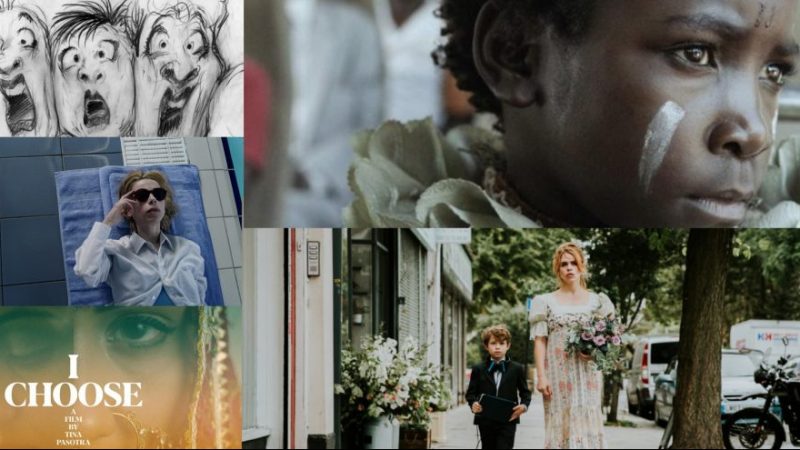
Film Hub Wales Recommends: Saint David’s Day Edition
In celebration of Saint David’s Day coming up, the Film Hub Wales team have picked just a handful of films with welsh connections to watch at home. See below for our personal recommendations, but you can also find our full Made in Wales film catalogue, and an extensive list of films with Welsh connections that can be watched while at home.

Welsh Government announces Great Point to take over Seren Stiwdios
Great Point will manage the studio for 10 years, with an option to acquire and expand the large studio complex. The agreement, which came into effect this week, closely follows Great Point’s recent announcements of the building of Lionsgate Studios in Yonkers, NY, as well as a second studio complex in Buffalo, New York. This third studio signals Great Point’s commitment to expanding its efforts to build and manage state-of-the-art production facilities in key production cities, where pressure on existing studio space is ever-increasing.
Seren Stiwdios in Cardiff, Wales, was built and developed by the Welsh Government in 2015. It has four large stages totaling 74,000 square feet, in addition to copious production office and ancillary space. Nearby locations are spectacular and diverse, with cityscapes, coast and countryside all easily accessible. Film and TV productions which have shot at Seren include The Huntsman: Winter’s War, Sherlock, Show Dogs, The State, A Discovery of Witches, The Crown and Doctor Who.
Welsh Government Deputy Minister for Culture, Sport and Tourism, Lord Elis-Thomas, said:
We are delighted to welcome Great Point to Wales with the establishment of their first studio complex in the UK as they bring with them access to a global network of industry contacts and exciting opportunities. Great Point’s approach to supporting and developing the local supply chain along with their commitment to education and mentoring will further enhance the creative sector in Wales. Great Point Seren Stiwdios will enhance Wales’ reputation as a preferred location for productions and further improve career and employment opportunities.

Watch Africa Cymru: Bringing African Cinema to Wales
The annual Welsh-African film festival, Watch-Africa Cymru, goes online in 2021 bringing together Africa and Wales to celebrate African cinema.
Founded 8 years ago in the south of Wales, Watch-Africa Cymru is Wales’ only African film festival. This year’s 9th edition is moving online this and takes place from the 19th -28th of February 2021.
With thanks support from Chapter Arts, Ffilm Cymru Wales and the Royal Welsh College of Music and Drama, an exciting program titled, ‘Bringing Africa to Wales’, has been curated. The festival will be screening a variety of 10 fantastic films, live Q&As with directors, cast, and experts.
Paired with this cinema programme, the festival will also offer a series of engaging workshops, specially arranged to complement the cinema programme (including a workshop on African Folklore!).
This festival will celebrate authentic cultural exchanges through trans-national cinematic collaborations. Kicking off the festival, Watch-Cymru Africa is pleased to welcome acclaimed Welsh-African filmmaker Florence Ayisi. The festival will culminate with a regal grande finale screening and discussion with the makers of ‘Buganda Royal MusicRevival’ and the Royal Welsh College of Music and Drama.
Follow Watch-Africa Cymru on Facebook, Twitter and Instagram to join the online discussion and for a chance to win some special prizes.
Christine Patterson, Watch-Africa Cymru producer said:
I am very pleased to be involved in such great collaborations for this year’s film festival. This program is sure to invoke a wide range of emotions, and spark some intriguing discussions.“We, as well as our collaborators look forward to enjoying the upcoming festival with you.
Claire Vaughan from Chapter Arts Centre said:
We have been working with Watch Africa for many years and I am very pleased that we have helped make this festival digital this year so audiences have a chance to see all these wonderful films.
“There are some real treats in store – documentaries from Wales-based filmmakers, social commentary, comedy, classics and some of the most beautiful photography you’ll see this year.
“I am especially looking forward to the workshops, which include educators like Abu-Bakr Madden Al-Shabazz. Don’t miss your chance to see these films and see a bit of the world that is unavailable to us at the moment.”
Professor Florence Ayisi, an African filmmaker living in Wales and has 2 films that are going to be screened said that:
“Watch-Africa Cymru offers creative spaces for filmmakers and film lovers to connect and dialogue. It is a special space that is more energised around ideas, images and stories about African culture and experiences captured in film. More importantly, it is a place to see, hear and know a little bit more about perspectives and lived experiences that bridge gaps of misinformation and misrepresentations about life in Africa.”
Watch-Africa Cymru is more than a film festival; it has created a space for audiences to celebrate the cultures of African people who make up multi-cultural Wales; a fantastic vision!
Tickets for Bringing Africa to Wales Film Festival are on sale now. Each film is available to purchase and stream on the Chapter Player.
Click here for more information about the festival.
Click here to see the Watch Africa 2021 trailer.
The festival is supported by: Ffilm Cymru, Sub-Sahara Advisory Panel (SSAP), Hub Cymru Africa (HCA), Royal Welsh College of Music and Drama (RWCMD)